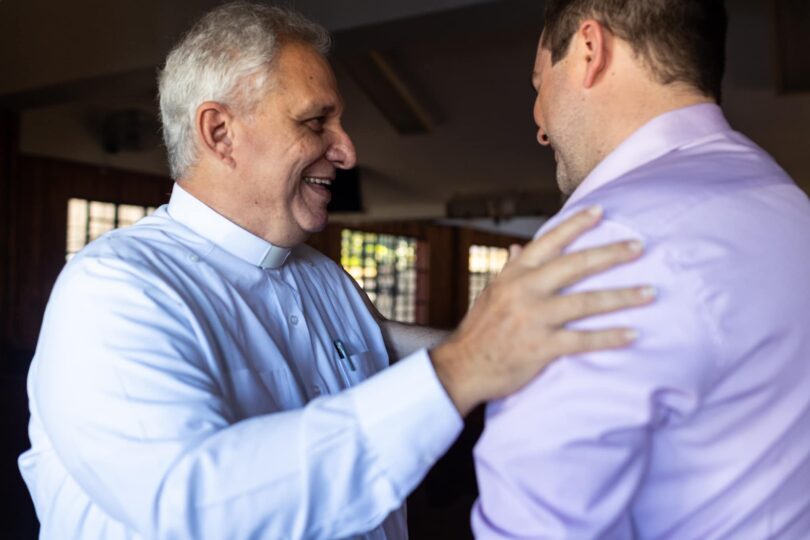A Mission of Repentance and Forgiveness
By Bishop Chris Giesler
Preaching Text: Luke 24:36b-48
This week’s text has some fascinating similarities to the passage assigned last week. That text from John 20:19-31 tells us about the resurrected Jesus appearing to his disciples in the Upper Room, where they were hiding behind locked doors. There are some interesting comparisons.
In both of these passages, Jesus first speaks a word of peace. This has been a consistent theme lately. We noted last week that the Hebrew word for peace, “Shalom,” has a far deeper meaning than simply the lack of conflict or war. It conveys a sense of completeness, trust, and inner calm that is not dependent on external circumstances. Some Biblical commentaries also note that in Luke’s Gospel(from which our text this week is coming), peace also communicates the promise of salvation.
As with last week’s text, we see a lot of fear here. It is interesting that in so many cases, Easter’s first emotion is fear, so it is little wonder that Jesus first speaks a word of peace. Listen to all of the emotions discussed here: startled, joyful, terrified, freighted, disbelieving, wondering. How can we hear this word of peace in the emotions of our lives today?
The disciples’ first reaction is doubt just like Thomas and the disciples did in John’s account. This should affirm the doubters in our pews today! We are all doubters seeking truth if we are willing to admit that to ourselves. THIS IS OK!
Jesus seeks to teach again, but this time, as the disciples listen, they have a much better grasp of who Jesus is and what he means. He opens their minds to a deeper understanding of who he is and what he wants them to do. He had told them all of this before, but now, they can understand more fully with the resurrection behind them.
But here comes the most important part because it helps us define our mission as Christians. Often, we equate mission with going to a foreign land to preach the good news to people who have not heard of Jesus or to take care of an unmet need, be it medical work, building a church, or providing food and water. But in this text, Jesus makes something even more fundamental a part of our call to mission.
In Luke 24:47, Jesus gives his disciples, then and now, something to do…” Repentance and forgiveness are to be proclaimed to all the nations, beginning in Jerusalem.” This is Luke’s great commission! To do this, we don’t have to travel to Tanzania or navigate to Nicaragua; we can walk next door.
What does it mean to proclaim repentance and forgiveness in Jesus’ name to all nations, beginning from Jerusalem? Since Jesus was speaking these words in Jerusalem, he was telling them to start right where they were standing and work from there. He was also telling them that repentance and forgiveness knows no boundaries. Repentance means to have a change of heart and behavior, and forgiveness means to release the person or sin that had caused you harm so that it no longer rules your life. Forgiveness means to help restore a sense of peace in a relationship. Is there anything that our world needs more of right now? I don’t think so. Too often, we humans, when left to our own devices, live holding grudges and seeking revenge. We perpetuate divisions of political affiliation, color, culture, class, gender, and nationality. We allow national borders to supersede the call from Jesus to care for the needs of ALL people.
The call to proclaim repentance and forgiveness at home and around the world is what is needed to stop the cycle of revenge and retribution that fuels feuds between families and wars between countries.
Repentance and forgiveness require no money, no travel, and no sacrifice of time. It takes only the heart of Jesus to change who we are to be his messengers of grace and peace. This is where all mission begins.







